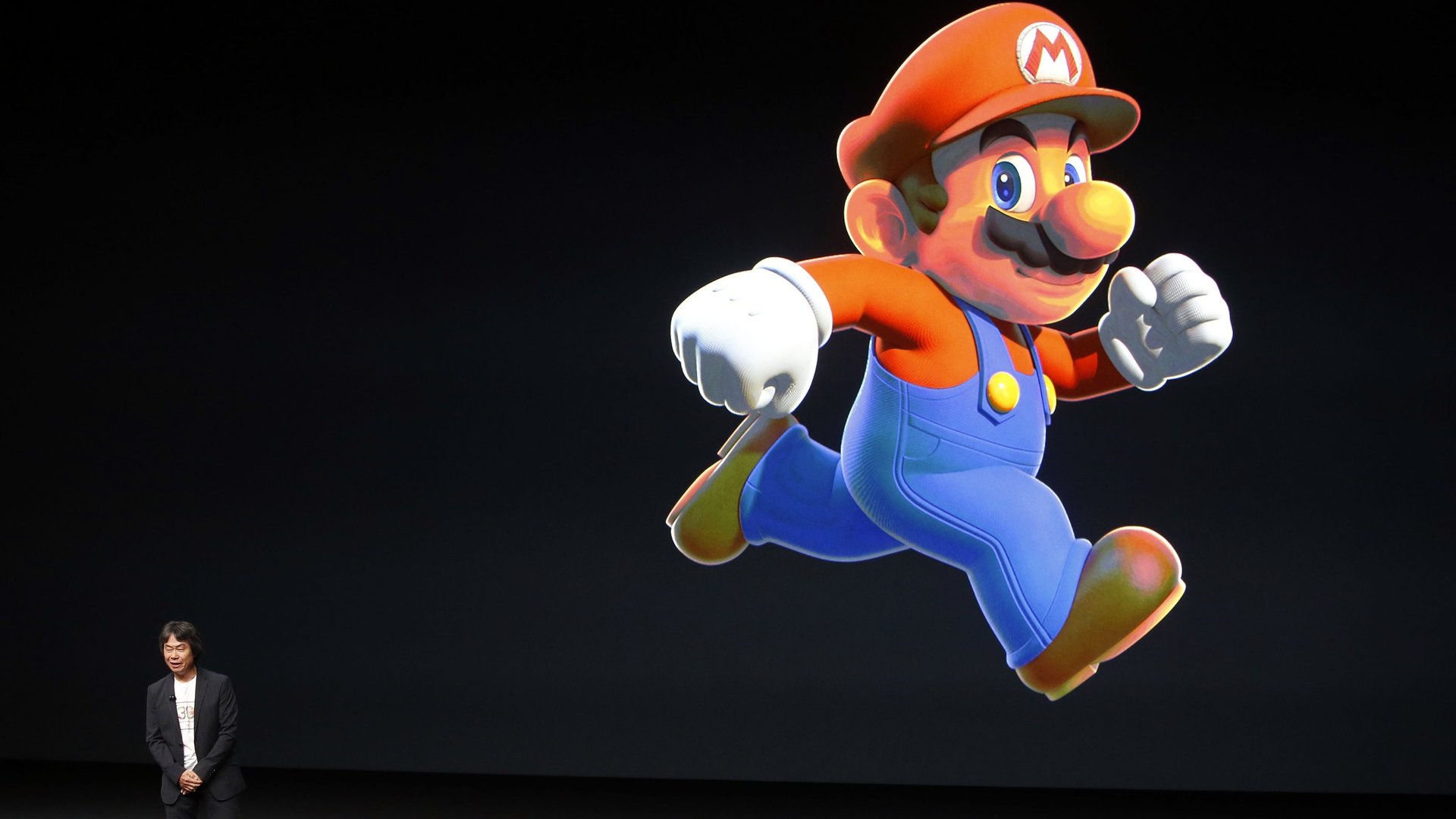Super Mario Run marks a new phase for Apple and the App Store
Super Mario Run is off to a running start at the Apple App Store—hours after its launch, it’s already ranked as the most-downloaded, highest-grossing app in the US.


Super Mario Run is off to a running start at the Apple App Store—hours after its launch, it’s already ranked as the most-downloaded, highest-grossing app in the US.
Nintendo investors will be watching the game’s reception closely. The company belatedly transitioned from consoles to smartphone titles. The app’s release marks a test of how effectively Apple can breathe new life into another company’s software and media business.
Super Mario Run has received more promotion than almost any other game to hit iOS, Apple’s operating system for mobile devices. It was formally announced at Apple’s iPhone 7 launch event in September, during which Nintendo head Shigeru Miyamoto went on stage. Afterwards, it occupied a valuable real estate in Apple’s app store, appearing in a featured banner for months, months before users could download and play it. Apple also launched Mario-themed stickers for iMessage, unveiled game demos in its Apple stores, and released an iTunes-exclusive interview with Nintendo head Miyamoto.
The hype has extended beyond Apple. Miyamoto showed up on late-night television and granted interviews with both legacy and online media outlets to promote the game. The pre-release frenzy has led some analysts to speculate that Apple, not Nintendo, is leading the publicity charge.
Apple gets 30% of the revenue from all purchases in the App Store, so pushing sales of $9.99 Mario game adds to its own bottom line. The hyped rollout will test how effectively Apple sell software made by other companies.
After years of riding the iPhone’s success, Apple is at a crossroads. Sales growth for its flagship device has slowed. As the global market for smartphones becomes saturated, the hardware maker has few opportunities to attract new customers.
This has led the company to focus on boosting revenue from its “services” segment, shorthand for software and media from the App Store, Apple Music, Apple TV or other services. In May the segment passed a milestone when it accounted raked in $5.99 billion, accounting for over 10% of Apple’s total revenue. Throughout 2016, sales from “services” have surpassed sales from all other non-iPhone hardware.
Much like how Apple Music released exclusive records from Drake and Frank Ocean this year, Super Mario’s release signals what we can expect from the App Store. High-profile titles from companies like Disney will see preferential placement and PR pushes, in hopes that users will download the game and—most importantly—pay a relatively steep price to finish it.